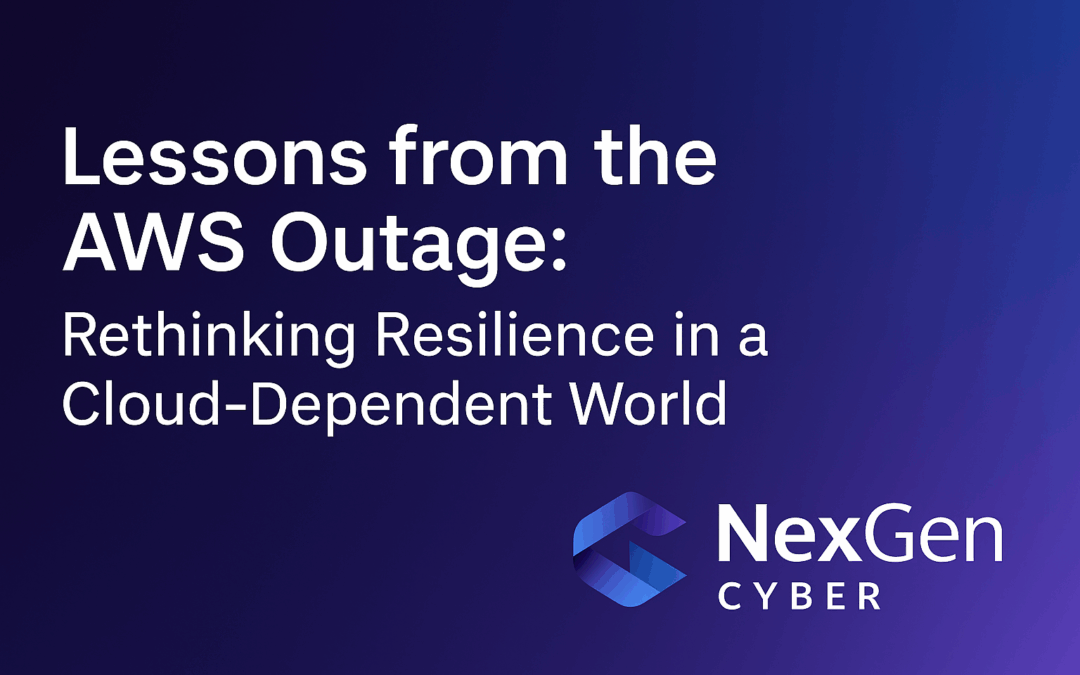On October 20th, 2025, Amazon Web Services (AWS) experienced a major outage in its US-EAST-1 region, disrupting thousands of applications and services globally. From banking platforms and government portals to gaming networks and productivity tools, the ripple effect was immediate and far-reaching. While AWS has since restored services, the incident serves as a stark reminder of how fragile our digital infrastructure can be and why cybersecurity resilience must be a top priority.
At NexGen Cyber, we believe this outage offers critical lessons for businesses of all sizes, especially those relying heavily on cloud infrastructure for core operations.
1. Cloud Convenience vs. Control
The outage was triggered by a DNS resolution failure in DynamoDB, a foundational AWS service. Because so many applications depend on shared services in the US-EAST-1 region, even workloads hosted elsewhere were affected. This highlights a key vulnerability: centralized cloud dependencies can undermine redundancy strategies if not properly designed. Techabal
Takeaway: Businesses must architect for multi-region cloud architecture and multi-provider failover, not just multi-AZ redundancy. Relying on a single cloud provider or region is no longer a viable strategy.
2. Cybersecurity Isn’t Just About Threats: It’s About Resilience
While the AWS outage was not caused by a cyberattack, experts warn that similar infrastructure vulnerabilities could be exploited by malicious actors. The incident underscores the importance of disaster recovery planning and business continuity as core components of cybersecurity.
Takeaway: Cybersecurity teams must collaborate with IT and DevOps to ensure that incident response plans are tested, documented, and ready to deploy. Geekwire
3. The Risk of Tech Monoculture
The outage exposed the risks of “tech monoculture”—where a large portion of the internet relies on a single provider. Like agricultural monoculture, a single point of failure can have devastating consequences. Geekwire
Takeaway: Diversification is key. Consider hybrid cloud models, edge computing, and open-source alternatives where appropriate.
4. Communication Is Critical During a Crisis
AWS’s response was swift, but the delay in clear communication left many businesses scrambling. In cybersecurity, incident response is not just technical, it’s also about transparency and trust.
Takeaway: Build internal playbooks that include communication protocols for stakeholders, customers, and partners during outages or breaches.
How NexGen Cyber Can Help
As cybersecurity specialists, NexGen Cyber is uniquely positioned to help businesses:
- Audit cloud dependencies and identify single points of failure.
- Design resilient cloud security strategies with multi-region and multi-cloud support.
- Develop and test disaster recovery plans tailored to your environment.
- Support overstretched IT teams, especially in SMEs with limited resources.
The AWS outage is a wake-up call, but it’s also an opportunity. Let’s use it to build stronger, smarter, and more secure systems.
Ready to future-proof your business?
Get in touch with NexGen Cyber today here.
